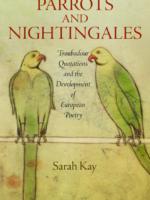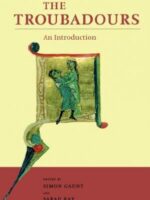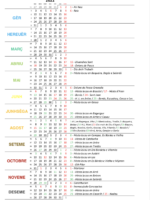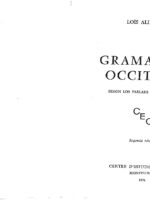Recommended Books
-
Parrots and nightingales : troubadour quotations and the development of Europea poetra
0,00 €The love songs of Occitan troubadours inspired a rich body of courtly lyric by poets working in neighboring languages. For Sarah Kay, these poets were nightingales, composing verse that is recognizable yet original. But troubadour poetry also circulated across Europe in a form that is less well known but was more transformative. Writers outside Occitania quoted troubadour songs word for word in their original language, then commented upon these excerpts as linguistic or poetic examples, as guides to conduct, and even as sources of theological insight. If troubadours and their poetic imitators were nightingales, these quotation artists were parrots, and their practices of excerption and repetition brought about changes in poetic subjectivity that would deeply affect the European canon.
The first sustained study of the medieval tradition of troubadour quotation, Parrots and Nightingales examines texts produced along the arc of the northern Mediterranean—from Catalonia through southern France to northern Italy—through the thirteenth century and the first half of the fourteenth. Featuring extensive appendices of over a thousand troubadour passages that have been quoted or anthologized, Parrots and Nightingales traces how quotations influenced the works of grammarians, short story writers, biographers, encyclopedists, and not least, other poets including Dante and Petrarch. Kay explores the instability and fluidity of medieval textuality, revealing how the art of quotation affected the transmission of knowledge and transformed perceptions of desire from the “courtly love” of the Middle Ages to the more learned formulations that emerged in the Renaissance. Parrots and Nightingales deftly restores the medieval tradition of lyric quotation to visibility, persuasively arguing for its originality and influence as a literary strategy.
-
The Troubadours: An Introduction
0,00 €This book offers a general introduction to the world of the troubadours. Its sixteen chapters, newly commissioned from leading scholars in Britain, the United States, France, Italy and Spain, trace the development of troubadour song (including music), engage with the main trends in troubadour scholarship, and examine the reception of troubadour poetry in manuscripts and in Northern French romance. A series of appendices offer an invaluable guide to more than fifty troubadours, to technical vocabulary, to research tools and to surviving manuscripts.
-
Subjectivity in Troubadour Poetry
0,00 €The medieval troubadours of the South of France profoundly influenced European literature for many centuries. This book is the first full-length study of the first-person subject position adopted by many of them in its relation to language and society. Using modern theoretical approaches, Sarah Kay discusses to what extent this first person is a “self” or “character,” and how far it is self-determining. Kay draws on a wide range of troubadour texts, providing many close readings and translating all medieval quotations into English. Her book will be of interest both to scholars of medieval literature, and to anyone investigating subjectivity in lyric poetry.






